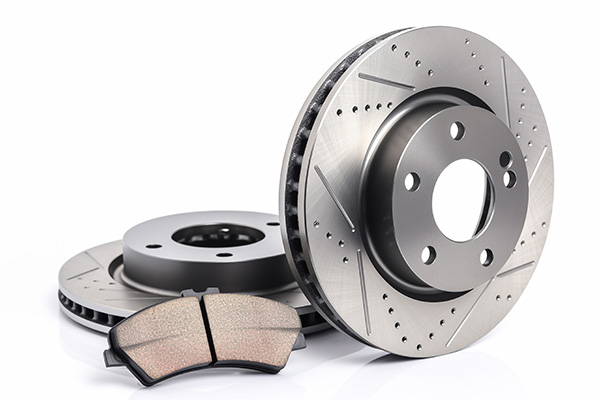
Your Volkswagen is built for comfort, style, and performance, but its safety depends heavily on a functioning braking system. Brakes don’t just stop your car; they keep you and everyone else on the road safe. Ignoring early warning signs of brake wear can lead to costly repairs—or worse, an unsafe driving situation. But how do you know when it’s time for a replacement? Let’s look at the most common indicators that your Volkswagen needs new brakes.
Squealing or Grinding Noises
One of the first signs that your brakes need attention is an unusual sound. High-pitched squealing often comes from a small metal indicator built into your brake pads, designed to make noise when the pads are worn down. This is a clear warning that your brake pads are nearing the end of their lifespan.
Grinding, on the other hand, is more serious. It usually means the pads have worn down completely, and the metal of the caliper is scraping against the rotor. This can cause significant damage to your braking system and should be addressed immediately.
Vibrations When Braking
Does your steering wheel or brake pedal vibrate when you press the brakes? This could indicate warped rotors. Rotors can become uneven due to intense heat or wear over time, leading to an inconsistent braking surface. While resurfacing might fix mildly warped rotors, replacing them is often the safest option for reliable performance.
Longer Stopping Distances
Have you noticed that your car takes longer to come to a complete stop? Reduced braking efficiency can be a sign of worn pads, low brake fluid, or even problems with the brake system’s hydraulics. This is a dangerous issue, especially in emergencies, and it must be inspected as soon as possible.
A Soft or Spongy Brake Pedal
When you press down on the brake pedal, it should feel firm and responsive. If it feels soft, spongy, or requires more effort than usual, there may be air in the brake lines, a brake fluid leak, or an issue with the master cylinder. A spongy pedal is not something to ignore—get your braking system checked immediately.
Warning Lights on the Dashboard
Volkswagens are equipped with sensors that monitor brake performance. If the brake warning light or ABS (Anti-lock Braking System) light illuminates on your dashboard, it’s a clear signal to have your brakes inspected. Sometimes, this light is triggered by low brake fluid, but it can also point to a more serious problem like sensor failure or brake system malfunction.
Pulling to One Side While Braking
Does your car pull to one side when you hit the brakes? This uneven braking can result from a stuck caliper, unevenly worn brake pads, or issues with the brake hose. Besides being annoying, pulling while braking can compromise your ability to control the car, making it a hazard that needs immediate attention.
Visible Wear and Tear
If you’re comfortable checking your brakes visually, look at the brake pads through the spaces in your wheels. If the pad material appears less than ¼ inch thick, it’s time for a replacement. While you’re at it, inspect the rotors for deep grooves or scoring, as these are signs of excessive wear.
Take Action Before It’s Too Late
Brakes are not just another component of your car; they’re a lifeline. Recognizing these signs early can save you from more extensive (and expensive) repairs and, most importantly, keep you safe on the road. Regular brake inspections and maintenance are essential for ensuring your Volkswagen stays in peak condition.
Think your brakes might be wearing out? Trust European Auto Hause to keep your Volkswagen’s braking system in top shape. Contact us now to schedule an appointment and drive with confidence.